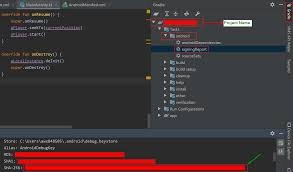
In the realm of programming languages, Kotlin has emerged as a versatile and powerful tool for developers worldwide. Since its inception in 2011 by JetBrains, Kotlin has rapidly gained popularity due to its concise syntax, interoperability with Java, and strong support for modern programming paradigms. In this article, we delve into the intricacies of Kotlin, exploring its features, advantages, and practical applications.
1. A Brief Overview of Kotlin
Kotlin, designed to be fully interoperable with Java, is a statically-typed programming language that runs on the Java Virtual Machine (JVM). It seamlessly integrates with existing Java projects, allowing developers to leverage their Java knowledge while taking advantage of Kotlin’s advanced features.
2. Concise Syntax
One of Kotlin’s defining features is its concise syntax, which significantly reduces boilerplate code compared to Java. Features like type inference, data classes, and extension functions allow developers to write cleaner and more expressive code with fewer lines, enhancing readability and maintainability.
3. Null Safety
Null pointer exceptions are a common source of bugs in Java applications. Kotlin addresses this issue with its null safety feature, where variables are non-nullable by default. Developers must explicitly specify when a variable can hold a null value, thereby reducing the risk of null pointer exceptions and improving code reliability.
4. Coroutines for Asynchronous Programming
Asynchronous programming is essential for building responsive and scalable applications. Kotlin provides first-class support for coroutines, a lightweight concurrency design pattern that simplifies asynchronous code execution. Coroutines enable developers to write asynchronous code in a sequential, imperative style, making complex asynchronous tasks more manageable and less error-prone.
5. Functional Programming Constructs
Kotlin embraces functional programming principles, offering powerful constructs such as higher-order functions, lambda expressions, and immutable data structures. These features enable developers to write more concise, expressive, and maintainable code, facilitating the development of robust and scalable applications.
6. Interoperability with Java
Kotlin’s seamless interoperability with Java allows developers to leverage existing Java libraries, frameworks, and tools within Kotlin projects. This interoperability enables a smooth transition for Java developers looking to adopt Kotlin gradually while maintaining compatibility with existing codebases.
7. Multi-platform Development
With the rise of mobile and web development, multi-platform support has become increasingly important. Kotlin provides a multi-platform development feature that allows developers to write shared code that can be compiled for multiple target platforms, including JVM, Android, iOS, and JavaScript. This capability streamlines the development process, reduces code duplication, and facilitates code reuse across different platforms.
8. Tooling and Community Support
Kotlin benefits from robust tooling and extensive community support, with a rich ecosystem of libraries, frameworks, and development tools. Integrated development environments (IDEs) such as IntelliJ IDEA and Android Studio offer first-class support for Kotlin, providing features such as code completion, refactoring, and debugging tailored specifically for Kotlin development.
9. Practical Applications
Kotlin finds application in various domains, including web development, mobile app development, server-side programming, and data analysis. It is widely used in Android app development, offering a more concise and expressive alternative to Java for building Android applications. Moreover, Kotlin’s versatility and interoperability make it suitable for backend development, with frameworks like Spring Boot and Ktor providing robust support for building Kotlin-based server applications.
10. Conclusion
In conclusion, Kotlin stands out as a modern and versatile programming language that combines the best features of object-oriented and functional programming paradigms. Its concise syntax, null safety, support for coroutines, and seamless interoperability with Java make it an ideal choice for building a wide range of applications. Whether you’re a seasoned Java developer looking to enhance your skills or a newcomer to programming seeking a powerful and intuitive language, Kotlin offers a compelling solution for your development needs. With its growing popularity and vibrant community, Kotlin is poised to play a significant role in the future of software development.

